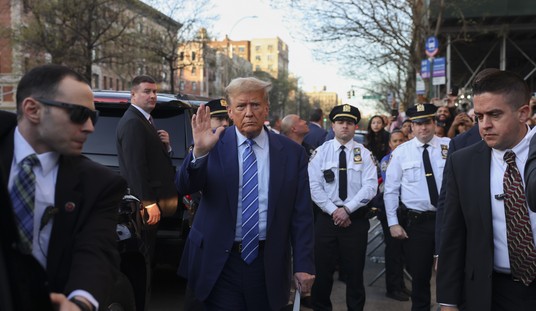In 2007, Blackwater guards — under contract to the U.S. Department of State to provide protection to State Department employees and others in Iraq — allegedly went on an unjustified rampage at a busy intersection in Baghdad, killing at least fourteen innocent civilians and wounding others.
On December 31, 2009, Judge Urbina of a federal district court sitting in Washington, D.C., dismissed all charges (due to prosecutorial misconduct — using statements made by the guards shortly after the alleged event in subsequent investigations and in grand jury proceedings). The judge is now considering whether to issue a misconduct citation against the prosecution. That would be quite an embarrassment to the Department of Justice.
Yet based on what happened, it would be an appropriate embarrassment.
The statements of the guards had been made under compulsion, as well as under promises of immunity from prosecution grounded in their statements. The compulsion and the promises of immunity were contained in written forms signed by the guards at the time of their statements:
I, _____________, hereby make the following statement at the request of _____________, who has been identified to me as a Special Agent of the U.S. Department of State, Diplomatic Security Service. I understand that this statement is made in furtherance of an official administrative inquiry regarding potential misconduct or improper performance of official duties and that disciplinary action, including dismissal from the Department’s Worldwide Personnel Protective Services contract, may be undertaken if I refuse to provide this statement or fail to do so fully and truthfully. I further understand that neither my statements nor any information or evidence gained by reason of my statements can be used against me in a criminal proceeding, except that if I knowingly and willfully provide false statements or information, I may be criminally prosecuted for that action under 18 United States Code, Section 1001.
From the pre-trial proceedings in federal district court in late 2009:
… this court convened a … hearing to explore whether the government had made any use of compelled statements during its prosecution of the defendants. During this hearing, which spanned three weeks, the parties presented testimony from twenty-five witnesses, including the government’s entire prosecution team, the lead FBI agents in charge of the investigation and all five defendants. The parties offered hundreds of exhibits into evidence and submitted voluminous pre- and post-hearing memoranda.
From this extensive presentation of evidence and argument, the following conclusions ineluctably emerge. In their zeal to bring charges against the defendants in this case, the prosecutors and investigators aggressively sought out statements the defendants had been compelled to make to government investigators in the immediate aftermath of the shooting and in the subsequent investigation. In so doing, the government’s trial team repeatedly disregarded the warnings of experienced, senior prosecutors, assigned to the case specifically to advise the trial team on [compulsion and immunity] … issues. … [T]his course of action threatened the viability of the prosecution. The government used the defendants’ compelled statements to guide its charging decisions, to formulate its theory of the case, to develop investigatory leads and, ultimately, to obtain the indictment in this case. The government’s key witnesses immersed themselves in the defendants’ compelled statements, and the evidence adduced at the … hearing plainly demonstrated that these compelled statements shaped portions of the witnesses’ testimony to the indicting grand jury.
In short, the government has utterly failed to prove that it made no impermissible use of the defendants’ statements or that such use was harmless beyond a reasonable doubt. Accordingly, the court must dismiss the indictment against all of the defendants.
Put even more plainly, their Fifth Amendment rights against self-incrimination were violated in spades. Prosecutorial zeal can be a problem when it causes the prosecution to go off the tracks. Here, it was most likely led in that direction by the intense interest in Iraq in seeing “justice” done.
The circumstances in which the alleged massacre occurred are set forth well and at great length in the court’s opinion, but should perhaps be summarized here. On September 16, 2007, the defendants were part of “Raven 23,” a Blackwater tactical support team. The team had four heavily armed vehicles and received a message that an improvised explosive device had detonated in the vicinity of a compound where U.S. officials were meeting with Iraqi officials. They went to secure an evacuation route for the American officials and for the Blackwater team providing their security. A shooting incident occurred in which at least fourteen Iraqis were killed and others were wounded. The government contended that the dead and wounded were unarmed civilians who were the victims of unprovoked violence by the defendants. The defendants maintained that they came under attack by insurgents and that their actions constituted a legitimate response to a mortal threat. The U.S. government came under substantial pressure from the government of Iraq to permit the Blackwater guards to be tried by an Iraqi court. Instead, they were returned to the United States for trial.
The United States government is very disappointed with the judge’s ruling. Also:
The Iraqi government regrets the decision. … Investigations conducted by specialized Iraqi authorities confirmed unequivocally that the guards of Blackwater committed the crime of murder and broke the rules by using arms without the existence of any threat obliging them to use force.
The judge’s ruling dismissing all charges due to prosecutorial misconduct has an importance which transcends the facts of the Blackwater case. The judge appears to have followed well-established law, and the U.S. government did not do so during the two years preceding the trial. Although the law is well-established, one must wonder whether the Holder Justice Department is as intimately familiar with it as it should be.
Is it likely that the trial of Khalid Sheikh Mohammed in New York City or even the trial of the young Nigerian gentleman who tried to blow up an aircraft landing in Detroit will go much differently? I think the parallels are all too obvious in the case of KSM, but less so in the case of the “underwear bomber.”
The KSM defense, probably correctly, will contend that any statements he made were compelled by what the Obama administration now considers torture, and that all information used in prosecuting him must, of necessity, be directly or indirectly the “fruit of the poison tree” and must therefore be ruled inadmissible. If the case gets that far, it will be necessary for the judge to hold a preliminary hearing, similar to the three-week long preliminary hearing held in the Blackwater case, to determine whether there was in fact compulsion. If so, the judge will consider whether and to what extent other evidence used at the grand jury proceeding which indicted him is its fruit. The burden of showing that evidence other than KSM’s statements was not the fruit of those statements will be upon the government, and it will be a heavy burden indeed.
KSM’s capture and subsequent interrogation clearly were not undertaken with a view towards criminal prosecution in a civilian court in the United States; to the extent that he had rights under the U.S. Constitution (and I am perhaps in the minority in thinking that he did not) during his interrogation, they were almost certainly violated. That was not a bad thing. Something far more important was involved: obtaining information to prevent occurrences similar to the 9/11 terrorist attack on New York City and Washington, D.C. This, I think, furthers my argument in an earlier article that KSM should not be brought to the United States for trial, and that he should not be tried by a military commission either. He should be detained indefinitely at Gitmo.
On January 4, the Fourth Circuit Court of Appeals upheld the conviction and sentence to multiple lifetimes in jail without any possibility of parole of Zacarias Moussaoui Moussaoui, who apparently intended to commandeer a fifth aircraft and crash it into the Capitol building. Mr. Moussaoui then set out to turn his trial into a farcical circus promoting jihad, and he succeeded brilliantly. It seems very likely that KSM will try to improve on his efforts, and with the illumination provided in the Blackwater court’s decision as to compelled statements and their fruits, he should have an easy job of it.
The young Nigerian underpants bomber may present a different case. His attempted terrorist act occurred on a U.S.-flagged passenger aircraft in U.S. airspace. There is thus far very little public information about what happened to him following his removal from the aircraft, other than that he was asked a few questions. When advised that he could do so, he requested counsel and followed advice to shut his mouth. If he said anything interesting before shutting his mouth, it seems possible that it cannot be used against him since he was then under arrest, even though not immediately given a “Miranda warning.” As soon as he was disabled by a fellow passenger in the act of igniting his device, it was clear that he was more than a “person of interest” or a mere potential criminal suspect. In the absence of such information, it is useless now to guess whether other evidence to be used against him will or will not be found to be the “fruit of the poison tree.”
It strikes me that, although it is important that he be tried for his crimes, it was and is far more important to milk him for whatever information he might provide on why, how, and with the help of whom he set about to blow up the aircraft. Should that mean he might eventually “walk” — guilty as Hell and free as a bird — so be it. The futures of far more and better people than the young Nigerian gentleman are in question, and just about anything done to protect them is far more important than his criminal prosecution. Perhaps an alternative to a criminal trial would be a sanity hearing, followed by his indefinite confinement in a mental institution.
The United States Constitution, the courts sworn to uphold it, and the resulting criminal judicial system are great — arguably the best in the world. However, there are simply some cases which have no business in the system. I consider terrorist attacks to be in that category. There may be some disagreement with the notion that ’tis better that a hundred guilty man be set free than that one innocent man be convicted. Indeed, we sometimes go too far. However, in the case of KSM, and perhaps the underpants bomber, the needs for criminal prosecution and conviction are trumped by the far more important need to save the lives of hundreds of others potentially to be lost through the future acts of those with whom they committed their crimes. I would far rather see KSM untried and detained indefinitely at Gitmo, and the underpants bomber untried and indefinitely detained in a mental institution, than to forego the benefits of their interrogations.








Join the conversation as a VIP Member